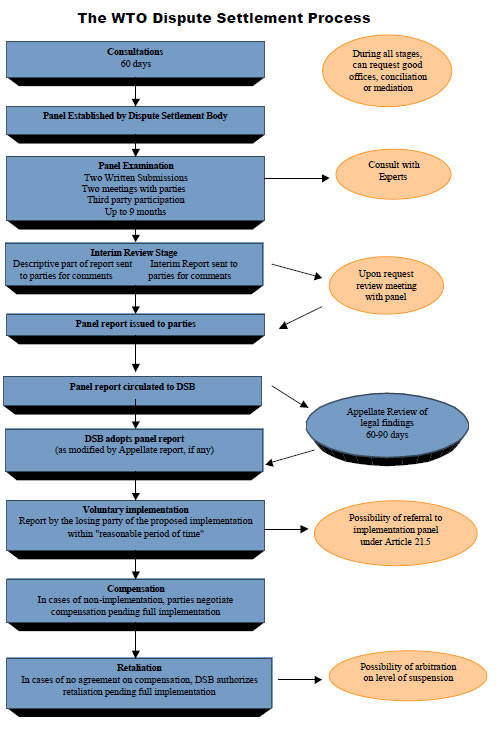Posted 08/07/2014 by Jaan Murphy
Australia is a respondent in five World Trade Organization (WTO) disputes regarding the introduction of the Tobacco Plain Packaging Act 2011 (TPPA). The disputes were commenced by Ukraine, Honduras, the Dominican Republic, Cuba and Indonesia (the Applicants).
Background
The TPPA was introduced in 2011 to improve public health by discouraging smoking, encouraging cessation, and implementing certain obligations under the World Health Organization (WHO) Framework Convention on Tobacco Control (FCTC). Plain packaging for cigarettes is a central element.
Between March 2012 and September 2013, the Applicants commenced WTO dispute proceedings, which have attracted significant interest, with a record number of countries (40) seeking to be joined in the consultation and dispute settlement processes. All five disputes will be heard by a single Panel.
At the same time, several countries, such as New Zealand and Ireland, have expressed their intention to adopt more stringent legislation on tobacco products, including plain packaging. Plain packaging for tobacco was first discussed in the TRIPS Council and in the WTO Technical Barriers to Trade Committee (which deals with labelling and general product standards) in June 2011:
India, Brazil and Cuba stressed their view that countries have the right to implement public health policies without intellectual property being an obstacle — referring directly or indirectly to the 2001 Doha Declaration on TRIPS and Public Health.
The dispute
The disputes share an overlapping core of alleged breaches of international agreements including the:
It is not possible to outline all the argued breaches in this post. However, some of the key alleged breaches are outlined below.
GATT and TBT
It is argued that the TPPA introduces technical regulations that breach parts of the GATT and TBT because it:
- treats imported tobacco products less favourably than domestically produced ones (argument 1)
- creates unnecessary obstacles to trade and is more trade-restrictive than ‘necessary’ to fulfil a legitimate objective (taking into account the risks that non-fulfilment would create) (argument 2), and
- does not provide effective protection against unfair competition to nationals of other countries, and creates confusion between goods of competitors (argument 3).
TRIPS and PC
It is also argued that through enacting the TPPA Australia has:
- failed to protect trademarks registered in a country outside of Australia ‘as is’ (argument 4)
- placed unjustifiable encumbrances on the use of tobacco related trade-marks (argument 5), and
- effectively denied or invalidated the registration of tobacco trade marks (argument 6).
The counter arguments
Whilst Australia’s submissions are not publically available, a number of leading commentators have noted Australia has a relatively strong case for the following reasons:
- Argument 1: The plain packaging requirements are non-discriminatory, as they apply equally to locally manufactured and imported tobacco products alike.
- Argument 2: Plain packaging is a ‘necessary’ measure designed to pursue a legitimate objective (the protection of human health and to give effect to the FCTC), is making a ‘material contribution’ to that objective, and is not more trade-restrictive than necessary to fulfil the objective (taking account of the risks non-fulfilment).
- Argument 3: The TPPA allows tobacco products to have a brand/variant name on the packaging (subject to certain restrictions), along with trade descriptions, brand differentiation and recognition is still possible and hence there should be no confusion between goods of different producers.
- Arguments 4 and 6: it provides tobacco related trade marks effective protection ‘as is’ and does not deny or invalidate their registration because section 28(3) specifically provides that the fact that a person is prevented from using their trademark on tobacco products is not a circumstance that makes it reasonable or appropriate not to register a trade mark or to revoke the registration of a trade mark.
- Argument 5: the TPPA does not ‘encumber’ the use of a tobacco trade mark by ‘special requirements’, and, even if it does, as it is necessary measure it is a justifiable encumbrance.
Current status of the disputes
A panel for the disputes was composed on 5 May 2014. The flow chart below (produced by DFAT) outlines the WTO dispute settlement process and approximate time-frames:

It is likely that the outcome of the case will not be known until sometime between late 2014 and early 2015. Depending on the outcome, this may be followed by an appeal.
Why is the case important?
The case is important because:
- it will determine the compatibility of the TPPA with Australia’s various international commitments and the interaction of these trade agreements with non-trade agreements such as the FCTC, and
- this dispute has the potential to become a seminal case regarding the human health exception to the GATT, which as noted in a previous Flag post, was the subject of consideration in the recent China rare-earth minerals dispute
Finally, a dispute brought by Phillip Morris Asia against Australia claiming that the TPPA breaches a bilateral treaty between Australian and Hong Kong, is currently being arbitrated. Its outcome is likely to be known later this year.